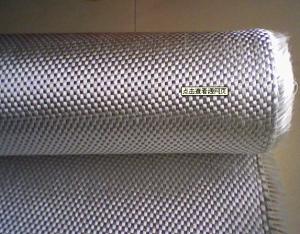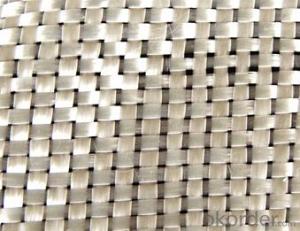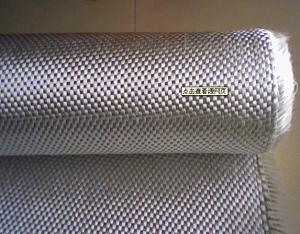E-glass Fiberglass Woven Roving,270g,1040mm
- Loading Port:
- China Main Port
- Payment Terms:
- TT or LC
- Min Order Qty:
- -
- Supply Capability:
- -
OKorder Service Pledge
OKorder Financial Service
You Might Also Like
Structure of woven roving Description
Glass woven rovings are bidirectional fabric by direct rovings in plain weave pattern. They are applicable for hand lay-up, winding and compress molding process, suitable for manufacturing tank, boat, automobile parts and other FRP products.
1,high strenth,corosion and resistence
2,consistent thickness,no fuzz
3,rapid impregnating
Main Features of the woven roving
1)Drapes well to suit the surface of intricate moulds
2)Fast wet-through and wet out
3)Easy handing and better appearance of the composite parts
4)Compatible with Unsaturated polyester resin
5)Very high laminate strength properties
Woven roving Images
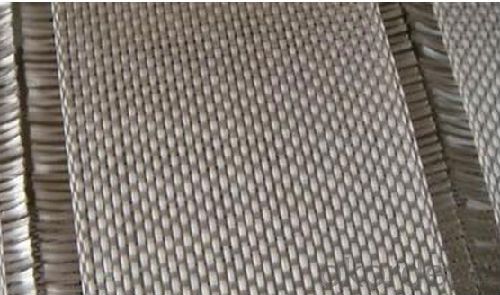
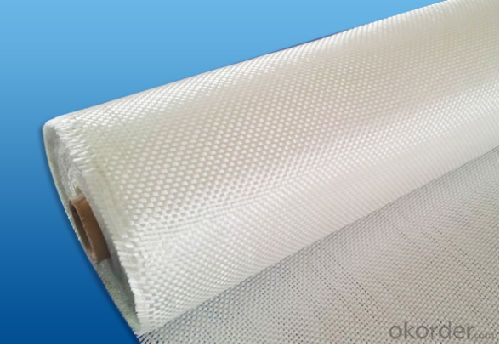
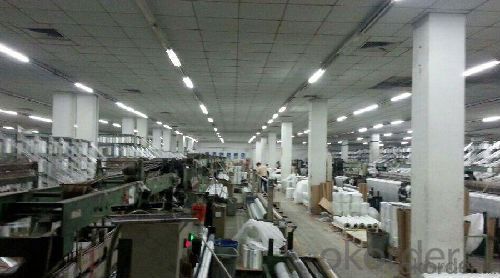
Woven roving Specification:
Normal type | EWR800 | EWR400 | EWR300 | EWR500 | EWR600 |
Thickness (mm) | 0.8 | 0.4 | 0.3 | 0.5 | 0.6 |
Density(warpxweft) (end/cm) | 1.8x1.5+/-10% | 3.6x3.2+/-10% | 4.6x4.1+/-10% | 2.2X2.0+/-10% | 2.6X2.4+/-10% |
Tex (warpxweft) | 2400x2400 | 600X600 | 300x400 | 1200x1200 | 1200X1200 |
Moisture content(%) | <0.2% | <0.2% | <0.2% | <0.2% | <0.2% |
Loss on ignition(%) | 0.4 – 0.8 | 0.4-0.8 | 0.4-0.8 | 0.4-08 | 0.4-0.8 |
Width(cm) | 125+/-1 | 125+/-1 | 125+/-1 | 125+/-1 | 125+/-1 |
Weight (g/m2) | 816+/-41 | 408+/-32 | 300+/-15 | 500+/-25 | 600+/-30 |
Weight per roll(kg) | 45 | 46 | 50 | 45 | 45 |
Glass | E-glass | E-glass | E-glass | E-glass | E-glass |
FAQ of woven roving:
Delivery Detail: 15-21days
Other spec. can be custom made as per customer's request.
Application of Fiberglass Woven Roving:
a) boats ,vessels ,plane
b) automotive parts ,furniture and sports facilities
c) resins system,such as polyeser,vinylester and epoxy resins
- Q:Is fiberglass mat tissue resistant to mold and mildew?
- Yes, fiberglass mat tissue is resistant to mold and mildew due to its non-porous and moisture-resistant properties.
- Q:Does fiberglass mat tissue provide any moisture insulation?
- Fiberglass mat tissue indeed offers a certain degree of moisture insulation. Renowned for its water-resistant attributes, fiberglass, when transformed into mat tissue, bolsters this quality even more. By serving as a protective shield, it thwarts the infiltration of moisture, averting potential harm to underlying substances. Nevertheless, it is crucial to recognize that fiberglass mat tissue does not possess absolute waterproofing abilities and might permit some moisture penetration over prolonged periods. Consequently, it is advisable to incorporate supplementary moisture insulation materials in scenarios demanding comprehensive waterproofing.
- Q:What are the main applications of fiberglass mat tissue?
- Fiberglass mat tissue is a versatile material that finds various applications in industries such as construction, automotive, aerospace, and marine. Some of the main applications of fiberglass mat tissue include: 1. Construction: Fiberglass mat tissue is commonly used in the construction industry for reinforcing and strengthening various building materials such as roofing shingles, wallboards, and cementitious products. It adds tensile strength and durability to the structures, making them more resistant to cracks, water damage, and weathering. 2. Automotive: Fiberglass mat tissue is used in the manufacturing of automotive parts such as dashboards, door panels, and trunk liners. It provides structural integrity, sound insulation, and heat resistance, making the vehicles safer and more comfortable. 3. Aerospace: In the aerospace industry, fiberglass mat tissue is used in the production of lightweight composite materials used in aircraft structures. It helps in reducing the overall weight of the aircraft, improving fuel efficiency, and enhancing its performance. 4. Marine: Fiberglass mat tissue is widely used in boat and shipbuilding. It is used in the construction of hulls, decks, and other components to provide strength, stiffness, and resistance to water and corrosion. Fiberglass mat tissue is preferred over traditional materials like wood due to its lightweight, durability, and low maintenance requirements. 5. Electrical and Electronics: Fiberglass mat tissue is used in electrical insulation applications such as transformer boards, electrical cabinets, and switchgear. It provides excellent dielectric properties, heat resistance, and mechanical strength, ensuring the safety and reliability of electrical equipment. 6. Filtration: Fiberglass mat tissue is used in various filtration applications such as air filters, water filters, and oil filters. It acts as a filtration media, trapping and removing impurities, dust, and particles from the air, water, or oil, thus improving the quality and purity of the filtered substances. Overall, fiberglass mat tissue is a widely used material in numerous industries due to its strength, durability, lightweight, and resistance to various environmental factors. Its versatility makes it an essential component in various applications, contributing to the development of safer, stronger, and more efficient products.
- Q:What is the chemical resistance of fiberglass mat tissue?
- Fiberglass mat tissue has excellent chemical resistance due to its composition, which includes a high percentage of glass fibers. These fibers provide a barrier against various chemicals, making the fiberglass mat tissue highly resistant to corrosion and degradation when exposed to acids, alkalis, solvents, and other harsh chemicals.
- Q:Is fiberglass mat tissue suitable for aerospace interiors?
- Yes, fiberglass mat tissue is suitable for aerospace interiors. Fiberglass mat tissue is a lightweight and highly versatile material that offers excellent strength and durability. It is commonly used in aerospace applications due to its ability to meet stringent fire safety requirements, such as low smoke and toxicity emissions. Additionally, fiberglass mat tissue is resistant to moisture, chemicals, and temperature variations, making it an ideal choice for the demanding conditions inside an aircraft cabin. Its excellent sound insulation properties further enhance its suitability for aerospace interiors, ensuring a comfortable and quiet environment for passengers. Overall, fiberglass mat tissue offers a reliable and efficient solution for aerospace interior applications.
- Q:What is the typical width of fiberglass mat tissue rolls?
- The typical width of fiberglass mat tissue rolls can vary depending on the specific manufacturer and intended application. However, in the construction and insulation industries, fiberglass mat tissue rolls are commonly available in widths ranging from 1.22 meters (4 feet) to 2.44 meters (8 feet). These dimensions are often chosen to align with standard building materials and construction practices. It is important to note that there may be variations in width options depending on the region or supplier, so it is advisable to consult with the manufacturer or supplier for the specific width requirements for a particular project.
- Q:Can fiberglass mat tissue be used for repairing fiberglass shower stalls?
- Yes, fiberglass mat tissue can be used for repairing fiberglass shower stalls. It is a commonly used material for reinforcing and repairing fiberglass surfaces, including shower stalls.
- Q:Is fiberglass mat tissue resistant to earthquakes?
- No, fiberglass mat tissue is not specifically resistant to earthquakes. Fiberglass mat tissue is a lightweight material commonly used for insulation and reinforcement purposes in construction. While it can provide strength and stability to structures, it does not possess properties that make it inherently earthquake-resistant. To withstand earthquakes, buildings require a combination of design features, materials, and construction techniques that are specifically engineered to withstand seismic forces.
- Q:How does fiberglass mat tissue perform in terms of moisture absorption?
- Fiberglass mat tissue performs exceptionally well in terms of moisture absorption. Due to its composition of multiple layers of glass fibers and a binder, it can effectively resist moisture penetration, making it highly resistant to water absorption. This property makes fiberglass mat tissue an ideal material for various applications where moisture resistance is crucial, such as in roofing, insulation, and composite manufacturing.
- Q:What is the delamination strength of fiberglass mat tissue?
- The delamination strength of fiberglass mat tissue refers to its ability to resist the separation or detachment of layers within the material. This strength is dependent on various factors such as the quality of the resin used, the thickness and density of the mat, and the manufacturing process. Fiberglass mat tissue is typically designed to have a high delamination strength to ensure its durability and structural integrity. The mat is composed of multiple layers of glass fibers held together by a binder or resin. The bonding between these layers is crucial in preventing delamination. The delamination strength of fiberglass mat tissue can be determined through various testing methods, such as the peel test, where the force required to separate the layers is measured. This test provides valuable information about the adhesive strength between the layers and helps in assessing the overall quality of the material. The delamination strength can vary depending on the specific application and requirements. For example, fiberglass mat tissue used in construction or automotive industries may have different delamination strength specifications compared to those used in marine or aerospace applications. Manufacturers typically provide technical data or specifications indicating the delamination strength of their fiberglass mat tissue products. It is important to note that the delamination strength of fiberglass mat tissue can be influenced by external factors such as exposure to extreme temperatures, moisture, or chemical substances. Therefore, proper installation, maintenance, and adherence to recommended usage guidelines are essential to maintaining the desired delamination strength and overall performance of the material.
1. Manufacturer Overview |
|
|---|---|
| Location | |
| Year Established | |
| Annual Output Value | |
| Main Markets | |
| Company Certifications | |
2. Manufacturer Certificates |
|
|---|---|
| a) Certification Name | |
| Range | |
| Reference | |
| Validity Period | |
3. Manufacturer Capability |
|
|---|---|
| a)Trade Capacity | |
| Nearest Port | |
| Export Percentage | |
| No.of Employees in Trade Department | |
| Language Spoken: | |
| b)Factory Information | |
| Factory Size: | |
| No. of Production Lines | |
| Contract Manufacturing | |
| Product Price Range | |
Send your message to us
E-glass Fiberglass Woven Roving,270g,1040mm
- Loading Port:
- China Main Port
- Payment Terms:
- TT or LC
- Min Order Qty:
- -
- Supply Capability:
- -
OKorder Service Pledge
OKorder Financial Service
Similar products
New products
Hot products
Related keywords
